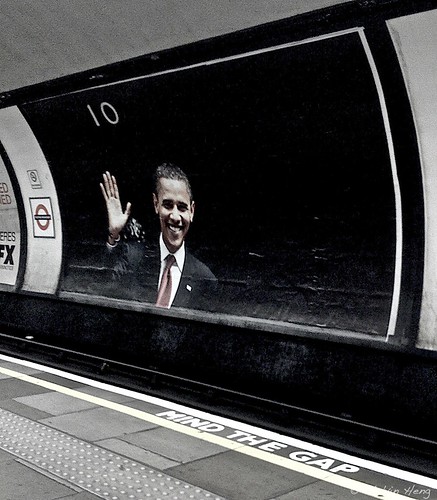This was a guest blog post on Solobasssteve.com on the 9th of November, you can read the initial responses and feedback there. (Do read the comments, lovely sustained debate). This was largely the same kind of conversation that was had today at the 1pound40 conference. If I have the time I’ll do a follow up post to that, but I will reiterate one really important point: the democratising potential of the information age is huge, but so it the potential to be washed away, passed by. We cannot allow ourselves to become a new tech intelligentsia, we do need to talk about the potential and failings of social media. We also need to do it. If we think social media has potential for change, let’s talk about how we take action, move things on. Grassroots, top down, let’s make things happen.

This is not a post about the things that are wrong with our world. This is a post about how we make them right. Of course it is not exhaustive, and by no means is it intended to be a detailed and flawless solution, in fact it openly admits that fact, because that (you will see) it is the point.
This post is in reaction to many things, but particularly in reaction to the recent #3strikes debate, the actions of Secretary of State for Business, Innovation and Skills, and a recently circulated confirmed rumour that suggests the same minister may have his sights set on the leadership of the Labour party. This is not a party political post, and I do not intend to argue why one man’s leadership would be bad for Labour, instead I intend to suggest that what this man represents is an outdated vision of politics, a vision that is bad for our country, and bad for our democracy.
Our society (and although I will talk more generally, ‘our’ here refers to UK society) is governed. We have democratically elected governments who, on the whole, make decisions and enforce laws with the intention of bettering society. I do not believe that anyone gets involved in politics for any other reason but improving the society they live in. This is the desire of the BNP, just as much as it is the desire of mainstream parties, their vision of a ‘better’ society might be opposed to the majority, but that is why they are not in power. Largely speaking, the party in power is supposed to represent the majority vision of what a better society is, and then strive towards it.
I do not believe that is currently so. Leaving aside first past the post reform and candidate selection, we wholly and entirely do not currently live in a democracy. The power is very much not ‘with the people’.
The Story
When Labour came into power in 1997, it was to the tune of a wholly broken opposition. 18 years of Conservative government had systematically deconstructed all that was of society and replaced it with the ethics of individualism. This was very good for a few, and catastrophic for a many. The many had finally realised. Labour won with more than just promises to renew, however, they won with what was for the first time, politics as marketing. It wasn’t just slogans, it was shiny adverts, they weren’t just promoting the values of the party, they were selling the story of New Labour.
Something else very important happened in 1997. The death of Diana. Others have pointed out before me how this marked an important turning point, not in politics, but in the media. This was the media as story, news not as reporting events, but as representing emotions. The papers spoke as though they spoke for us as they ordered the Queen from Balmoral.
Labour was in power without a credible opposition, and suddenly the press felt powerful. They could move the Queen to action. And someone needed opposing. If it was ‘The Sun Wot Won It’, The Sun could also oppose it.
Story is a very hard thing to fight. It is much older than democracy, much older than society.

